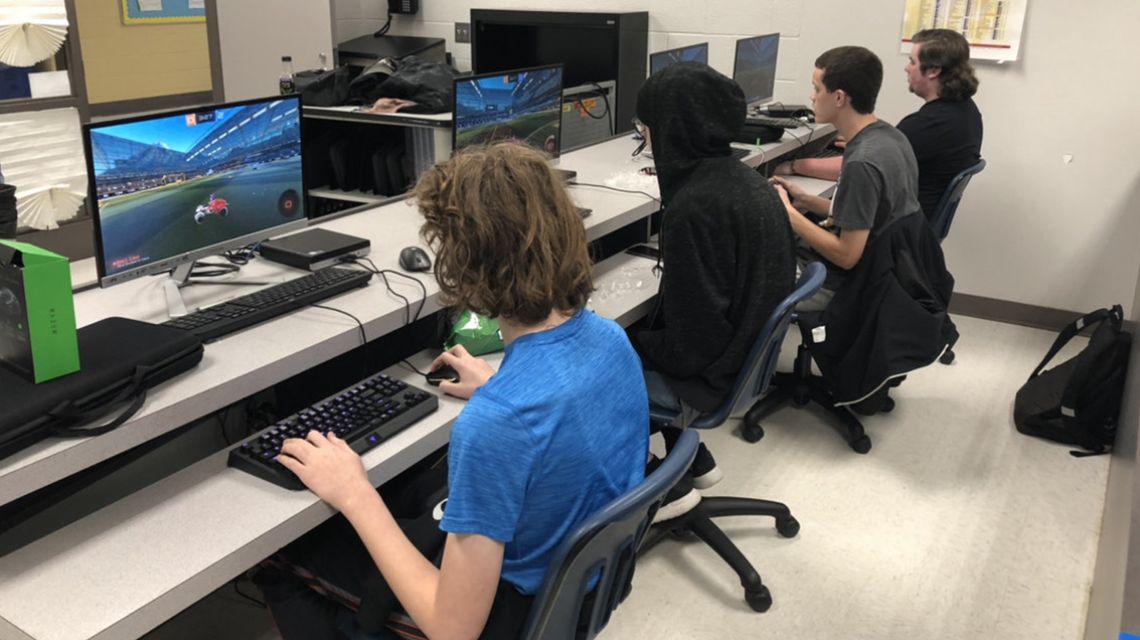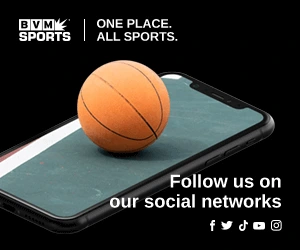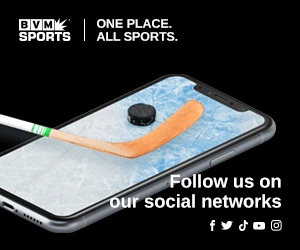
Virginia HS esports hope to continue growth despite COVID-19 limitations
CHARLOTTESVILLE, Va. (BVM) — In May 2019, the Virginia High School League executive committee approved a pilot program for a new field in athletics. The program would take advantage of one of the highest growing sports in the country and around the globe — esports. Through the help of the esports platform provider PlayVS, the VHSL embarked on its first steps into the esports realm where it would assess potential participation and data to see if the league would sanction esports as an official activity.
“The Virginia High School League is excited to be piloting esports for the 2019-2020 school year,” VHSL executive director John Haun said in a press release. “Since approved by the executive committee at the May meeting, there has been a lot of positive feedback from schools and sponsors who are very excited about esports. The League is always looking to increase opportunities for students beyond the traditional activities.”
With the growth of esports throughout the country, the VHSL felt the timing would be the best to get the most participation out of the activity.
“It was sort of a perfect storm, critical mass kind of timeframe,” VHSL assistant director for academic activities Darrell Wilson said. “The National Federation of High School Sports Associations had worked out an arrangement with PlayVS to be the provider for state associations so with the NFHS backing them and putting them out there as the preferred partner for esports, we felt like it was the right time for us to jump in given the momentum in the activity.”
So far, the activity has faced its fair share of ups and downs.
During its first year, esports activities were split into two seasons, one for fall running from October to January and another for spring running from February to May. The teams would offer three game titles: Rocket League, League of Legends and SMITE, and no first-person shooter games would be allowed. Schools could register directly through the PlayVS website and could have multiple teams in the pilot year. The cost per student would be $64 per title per season to participate in the pilot season.
The VHSL also promoted the activity as a tool for students to help them grow and set them up in the future. In a press release for parents, PlayVS said esports help to build friendships by giving participants a sense of community, develops character, increases participation and engages students to learn and practice STEM skills. The release also said esports allows a path to colleges as esports majors and careers have increased as well as collegiate programs with more than 200 colleges and universities combining to offer nearly 15 million dollars in scholarships for the emerging sport.
One of the activity’s greatest assets is it attracts students who may not participate in other extracurricular activities and allows them to progress both academically and socially.
“(Esports) reaches a market of students that aren’t typically participating in other activities currently,” Wilson said. “Studies show and the stats bear it out that you’re reaching students that don’t otherwise participate so you get them involved in the school community. They begin to see the school differently and they are seen differently in their school so it gets them connected just like a traditional sport or activity. … Their grades improve, their outlook improves, you’re seeing all those benefits that other traditional sport or activity students get.”
In the fall, the VHSL was able to field 36 schools with 39 League of Legends teams and 43 Rocket League teams, totaling 760 participants. This allowed the VHSL to create two state championship brackets, one for League of Legends and another for Rocket League, with 16 teams each. Some of the schools included in the tournament were Potomac Falls High School, Colonial Forge, Brooke Point, King George and others. By the end of the two tournaments, Washington Liberty High School reigned supreme in the Rocket League Championship while Park View High School was victorious in the League of Legends Championship.
The esports spring season officially began on Feb. 17 with now 62 schools combining for 53 League of Legends teams and 51 Rocket League teams with 760 participants for League of Legends and 650 for Rocket League. The season was progressing as normal until the fifth week of the season when government officials recommended the adoption of restrictions due to the COVID-19 pandemic.
“We thought everything was going positively. We just built on the positive experience we had on the first season,” Wilson said. “We were very positive about it going into this. Unfortunately, one of the things we had to do was with the COVID-19 and the quarantine and isolation, we felt like we had to treat it like other sports and activities.”
This decision ultimately limits the amount of competitions the new pilot league could do officially, but there is still potential for growth.
In a statement on the VHSL website, the league said, “Official team matches for VHSL esports will be suspended for the next two weeks. Continuation of regular season matches will be reassessed during this time. Students will continue to have access to their PlayVS platform accounts, and if they have access to equipment outside their school facilities, can continue to play the games remotely. Not all students or systems have the same access to resources, and we feel it best to follow the instructions of the Governor and State Superintendent, and suspend esports programs along with all other school activities.”
Although official gameplay may not be allowed, some student participants will be allowed to continue working on their craft at home. This is an advantage for esports players over other athletes as they do not need the large scale equipment other sports teams need such as a field or officials. All they need is a quality computer and an internet connection.
The VHSL is currently implementing an emerging sport and activity policy where anything new added has a three year phase-in period to grow and gain feedback before it could potentially be sanctioned as a full activity, according to Wilson. Although there is some fear that schools who have signed up to participate in the activity in the fall may back out due to the financial impacts of the pandemic, Wilson said esports have shown enough positive results to continue moving forward with it in the future.
“We’ve got an executive committee meeting coming up so we will be presenting the statistics from the first year and our feedback,” Wilsons said. “My feedback for that group is we saw season over season growth in the number of schools and the number of participants. We got positive feedback in the first season and positive feedback in the second season. We’ve got schools planning to add in the fall so we don’t see that number going down. With an upward trajectory, our request would be to extend and start that emerging status for another year.”
As far as getting the approval to become a sanctioned event, Wilson is hopeful there will be enough schools who want the activity to be an official one in three years time.
“I would imagine in three years we will hopefully be looking at a situation where we will have a lot more schools involved and there is a critical mass of schools that want to add this as a sanctioned event,” Wilson said.





